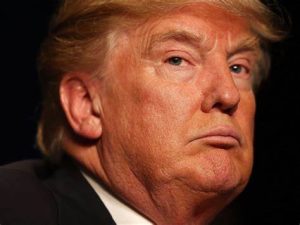Despite being barred from delivering a formal closing argument, Donald Trump seized an opportunity to speak in court at the conclusion of his New York civil fraud trial on Thursday. In a six-minute diatribe, Trump unleashed a barrage of attacks before being cut off by Judge Arthur Engoron.

Although denied permission earlier to give a closing statement, Trump spoke as the judge attempted to ascertain if the former president would adhere to rules requiring his remarks to be focused on trial matters. In defiance of the judge’s inquiry, Trump plunged into his speech, asserting his innocence and claiming persecution by someone running for office.
“We have a situation where I am an innocent man,” Trump protested. “I’m being persecuted by someone running for office, and I think you have to go outside the bounds.” Judge Engoron allowed him to continue briefly, then cut him off and recessed for lunch.
As the leading contender for the Republican presidential nomination, Trump has repeatedly criticized Engoron, accusing him of collaborating closely with the New York attorney general “to screw me.” On Wednesday, the judge had rejected Trump’s plan to deliver his closing remarks in court, alongside summations from his legal team, after Trump’s lawyers refused to adhere to the judge’s demand to stick to “relevant” matters.
After two of Trump’s lawyers presented traditional closing arguments on Thursday, Christopher Kise asked the judge again if Trump could speak. Engoron questioned Trump about adhering to earlier guidelines, which included refraining from introducing new evidence or making a campaign speech. Trump proceeded with his remarks, describing the situation as a fraud against him and accusing the judge of not listening.
“This is a fraud on me. What’s happened here, sir, is a fraud on me,” Trump asserted. He later accused the judge of not paying attention, prompting Engoron to warn Kise to control his client. The judge allowed Trump to speak for a little longer, then adjourned.
In the afternoon, Kevin Wallace, a lawyer for New York state, argued in his closing remarks that Trump and his “cash poor” company couldn’t have completed various development projects without loans and cash flow from interest savings enabled by spurious financial statements. Wallace contended that fraud was central to the operation of the Trump Organization’s business, with intentional inclusion of false information in the company’s financial statements.
Judge Engoron, who is overseeing the case without a jury due to state law restrictions, indicated that he hopes to deliver a final decision in the case by January 31.

